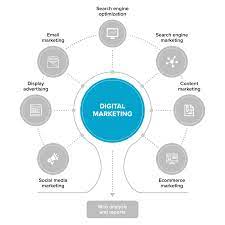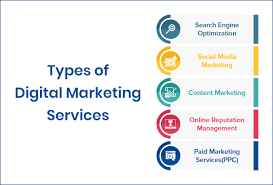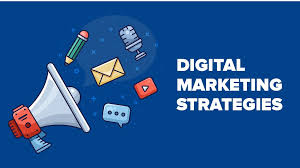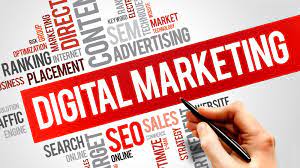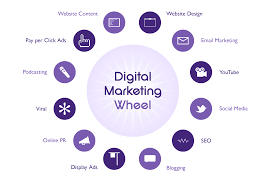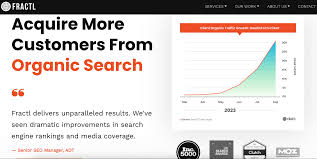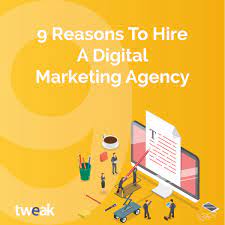The Power of Website Marketing
The Power of Website Marketing
In today’s digital age, having a strong online presence is crucial for the success of any business. Website marketing plays a vital role in reaching and engaging with your target audience effectively. It encompasses various strategies and techniques aimed at driving traffic to your website, converting visitors into customers, and ultimately growing your business.
Key Aspects of Website Marketing
Website marketing involves a combination of different elements to enhance your online visibility and attract potential customers:
- Search Engine Optimization (SEO): Optimising your website content to rank higher in search engine results pages, increasing organic traffic.
- Content Marketing: Creating valuable and relevant content to engage users and establish your brand as an authority in your industry.
- Social Media Marketing: Leveraging social media platforms to promote your website, engage with followers, and drive traffic.
- Email Marketing: Sending targeted emails to subscribers to nurture leads, promote products/services, and drive conversions.
- Pay-Per-Click Advertising (PPC): Running paid advertising campaigns to reach specific audiences and drive immediate traffic to your website.
- Conversion Rate Optimization (CRO): Improving the user experience on your website to increase conversion rates and maximise ROI.
The Benefits of Effective Website Marketing
A well-executed website marketing strategy can yield numerous benefits for your business:
- Increased Visibility: By implementing SEO and other marketing tactics, you can improve your website’s visibility in search results, making it easier for potential customers to find you online.
- Higher Traffic: Engaging marketing campaigns can drive more quality traffic to your website, leading to increased brand awareness and potential sales opportunities.
- Better Engagement: By creating compelling content and interacting with users on social media, you can build meaningful relationships with your audience and foster customer loyalty.
- Improved Conversions: Through targeted marketing efforts and CRO strategies, you can enhance the user experience on your site and convert more visitors into paying customers.
In Conclusion
In conclusion, website marketing is a powerful tool that can help businesses thrive in the competitive digital landscape. By harnessing the right strategies and staying abreast of industry trends, you can elevate your online presence, attract more customers, and achieve sustainable growth for your business.
21 Common Questions About Website Marketing: Strategies, Effectiveness, and Best Practices
- How do we market a website?
- Why is website marketing effective?
- What is the most effective marketing for websites?
- What is a website in marketing?
- How can we do the marketing of a website?
- How I can promote my website?
- How effective is website marketing?
- How do you use a website as a marketing strategy?
- How do I start a marketing website?
- How do we market our website?
- What type of marketing is website marketing?
- How can a website help marketing?
- What is the best marketing strategy for website?
- What is website in marketing?
- What is Web marketing give example?
- What is the best marketing strategy for a website?
- What makes a good website marketing?
- What is website marketing?
- What is website marketing and example?
- What is web marketing with examples?
- How is website used in marketing?
How do we market a website?
Marketing a website involves a strategic approach to increase its visibility and attract relevant traffic. To effectively market a website, businesses can employ various tactics such as search engine optimisation (SEO) to improve search engine rankings, content marketing to engage users with valuable content, social media marketing to reach a wider audience, email marketing to nurture leads and drive conversions, pay-per-click advertising for targeted promotion, and conversion rate optimisation (CRO) to enhance user experience and boost conversion rates. By integrating these strategies and adapting them to the specific goals and target audience of the website, businesses can create a comprehensive marketing plan that drives traffic, generates leads, and ultimately grows their online presence.
Why is website marketing effective?
Website marketing is effective for several reasons. Firstly, it allows businesses to reach a wider audience by leveraging various online channels such as search engines, social media, and email. This increased visibility can lead to higher website traffic and brand exposure. Secondly, website marketing enables targeted communication with potential customers, making it easier to tailor messages and offers to specific demographics or interests. By engaging with the right audience at the right time, businesses can drive conversions and achieve their marketing goals more effectively. Additionally, website marketing provides valuable data and insights that help businesses understand customer behaviour, preferences, and trends, allowing for continuous improvement and optimisation of marketing strategies. Overall, the effectiveness of website marketing lies in its ability to connect businesses with their target audience in a meaningful and measurable way, driving growth and success in the digital realm.
What is the most effective marketing for websites?
When it comes to determining the most effective marketing strategy for websites, there is no one-size-fits-all answer. The effectiveness of website marketing varies depending on factors such as the nature of the business, target audience, industry trends, and budget constraints. However, some commonly acknowledged effective marketing techniques for websites include search engine optimization (SEO) to improve visibility in search results, engaging content marketing to attract and retain visitors, social media marketing to connect with audiences on various platforms, and pay-per-click (PPC) advertising for targeted promotion. Ultimately, a combination of these strategies tailored to the specific goals and needs of a website can lead to successful outcomes in driving traffic, generating leads, and increasing conversions.
What is a website in marketing?
In the realm of marketing, a website serves as a digital storefront and hub for businesses to showcase their products or services, engage with customers, and drive conversions. It acts as a central platform where companies can convey their brand identity, share valuable content, and establish credibility in the online space. A well-designed website not only enhances visibility but also plays a crucial role in attracting and retaining customers by providing relevant information, facilitating transactions, and fostering meaningful interactions. In essence, a website is an indispensable tool in modern marketing strategies, serving as the cornerstone of a company’s online presence and digital marketing efforts.
How can we do the marketing of a website?
When it comes to marketing a website, there are several key strategies that can help drive traffic and boost online visibility. Implementing search engine optimization (SEO) techniques to improve website rankings on search engine results pages is essential. Creating high-quality, engaging content that resonates with the target audience can attract visitors and establish credibility. Leveraging social media platforms for promotion, engaging with followers, and sharing valuable content can also enhance website visibility. Additionally, utilising email marketing campaigns to reach out to subscribers and running pay-per-click advertising can further expand the reach of the website. By incorporating a combination of these strategies and staying updated on digital marketing trends, businesses can effectively market their websites and achieve their online goals.
Promoting your website effectively is essential for increasing its visibility and attracting more visitors. There are several strategies you can employ to promote your website successfully. Firstly, investing in search engine optimization (SEO) techniques can help improve your website’s ranking in search engine results, making it easier for users to find you online. Additionally, leveraging social media platforms to share your content and engage with your audience can drive traffic to your site. Email marketing campaigns, pay-per-click advertising, and creating compelling content that resonates with your target audience are also effective ways to promote your website and reach a wider audience. By combining these strategies strategically, you can enhance your website’s online presence and grow your business effectively.
How effective is website marketing?
The effectiveness of website marketing can vary depending on various factors such as the strategies employed, target audience, industry competition, and the overall execution of the marketing efforts. When implemented thoughtfully and strategically, website marketing can be highly effective in increasing online visibility, driving targeted traffic to your site, engaging with potential customers, and ultimately converting leads into sales. Regular monitoring and analysis of key performance indicators can help businesses assess the impact of their website marketing initiatives and make necessary adjustments to maximise effectiveness over time.
How do you use a website as a marketing strategy?
Utilising a website as a marketing strategy involves a multifaceted approach aimed at maximising its potential to attract and engage with target audiences effectively. Firstly, ensuring that the website is optimised for search engines through SEO techniques is crucial in improving visibility and driving organic traffic. Creating high-quality, relevant content that resonates with the target market helps establish credibility and authority in the industry. Integrating social media platforms to promote the website content and engage with followers can further amplify its reach. Additionally, employing email marketing campaigns to nurture leads and drive conversions, along with utilising PPC advertising for targeted outreach, are essential components of leveraging a website as a powerful marketing tool. By implementing these strategies cohesively, businesses can harness the full potential of their website to enhance brand awareness, generate leads, and ultimately drive business growth.
How do I start a marketing website?
Starting a marketing website involves several key steps to ensure its success. Firstly, define your target audience and establish clear goals for your website. Conduct market research to understand your competitors and identify unique selling points that set you apart. Next, choose a reliable web hosting service and domain name that reflect your brand identity. Design a visually appealing and user-friendly website layout that prioritises easy navigation and engaging content. Implement SEO strategies to improve your site’s visibility in search engine results. Lastly, create a comprehensive marketing plan that includes social media promotion, email campaigns, and other digital marketing tactics to drive traffic to your site and convert visitors into customers. By following these steps diligently, you can launch a successful marketing website that effectively promotes your products or services to your target audience.
How do we market our website?
When it comes to marketing your website, a strategic approach is essential to ensure maximum visibility and engagement with your target audience. Start by implementing a comprehensive digital marketing plan that includes elements such as search engine optimisation (SEO), content marketing, social media promotion, email campaigns, pay-per-click advertising, and conversion rate optimisation. By leveraging these tactics effectively and tailoring them to your specific business goals, you can drive traffic to your website, enhance user engagement, and ultimately increase conversions. Regularly analysing data and metrics to refine your strategies will help you stay ahead in the competitive online landscape and reach your desired marketing objectives.
What type of marketing is website marketing?
Website marketing is a form of digital marketing that focuses specifically on promoting and enhancing a company’s online presence through its website. It encompasses a range of strategies and tactics aimed at driving traffic to the website, engaging visitors, and ultimately converting them into customers. Website marketing leverages various tools such as search engine optimisation (SEO), content marketing, social media marketing, email campaigns, and pay-per-click advertising to effectively reach target audiences and achieve business objectives in the online realm. By leveraging the power of the internet, website marketing enables businesses to showcase their products or services, build brand awareness, and drive growth in the digital landscape.
How can a website help marketing?
A website plays a crucial role in marketing by serving as a central hub for businesses to showcase their products or services, communicate their brand message, and engage with their target audience. Having a well-designed and user-friendly website can enhance brand visibility, credibility, and trust among potential customers. Through strategic implementation of SEO, content marketing, social media integration, and other digital marketing tactics, a website can drive traffic, generate leads, and ultimately convert visitors into loyal customers. In essence, a website acts as a powerful marketing tool that enables businesses to reach a wider audience, establish their online presence, and achieve their marketing goals effectively.
What is the best marketing strategy for website?
When considering the best marketing strategy for a website, it is essential to tailor the approach to the specific goals and target audience of the business. A comprehensive digital marketing strategy that combines elements such as search engine optimisation (SEO), content marketing, social media engagement, email campaigns, and pay-per-click advertising can be highly effective in driving traffic and conversions. By focusing on creating valuable and relevant content, engaging with customers on social platforms, targeting specific audiences through paid advertising, and continuously optimising for search engine visibility, businesses can maximise their online presence and achieve long-term success in the competitive digital landscape.
What is website in marketing?
In the realm of marketing, a website serves as a digital hub or virtual storefront where businesses showcase their products or services to a global audience. It acts as a central point for engaging with potential customers, conveying brand messaging, and driving conversions. A website in marketing is not just a static online presence but a dynamic platform that can be optimised using various strategies such as SEO, content marketing, and social media promotion to attract and retain visitors. Essentially, a well-crafted website is an essential tool in modern marketing efforts, playing a pivotal role in establishing credibility, expanding reach, and ultimately contributing to the success of a business in the digital age.
What is Web marketing give example?
Web marketing, also known as online marketing, refers to the promotion of products or services using the internet and digital technologies. It encompasses various strategies such as search engine optimization (SEO), social media marketing, email marketing, and pay-per-click advertising to reach a wider audience and drive traffic to a website. An example of web marketing is a company using targeted Facebook ads to promote its new product range to a specific demographic group based on their interests and online behaviour. By leveraging web marketing techniques effectively, businesses can increase brand visibility, engage with customers, and ultimately boost their online presence and sales.
What is the best marketing strategy for a website?
When considering the best marketing strategy for a website, it is essential to tailor the approach to the specific goals and target audience of the business. A successful marketing strategy often involves a combination of tactics such as search engine optimisation (SEO) to improve visibility in search results, content marketing to engage users with valuable information, social media marketing to connect with audiences on various platforms, and paid advertising campaigns for immediate traffic. Ultimately, the most effective strategy is one that aligns with the business objectives, resonates with the target audience, and is continuously monitored and adjusted for optimal results.
What makes a good website marketing?
A good website marketing strategy encompasses several key elements that work together to drive success. Firstly, effective search engine optimisation (SEO) is essential to ensure your website ranks well in search results and attracts organic traffic. Compelling and relevant content that resonates with your target audience is also crucial for engaging visitors and establishing your brand as an authority in your industry. Utilising social media platforms to promote your website, interact with followers, and drive traffic can further enhance your marketing efforts. Additionally, a user-friendly website design, clear call-to-actions, and regular performance analysis are vital components of a successful website marketing strategy. By combining these elements strategically, businesses can create a strong online presence, attract more visitors, and ultimately convert them into loyal customers.
What is website marketing?
Website marketing, also known as online marketing or digital marketing, refers to the strategies and techniques used to promote a website and attract visitors. It encompasses a range of activities aimed at increasing online visibility, driving traffic, and ultimately achieving business goals such as lead generation and sales. Website marketing includes various components such as search engine optimization (SEO), content marketing, social media engagement, email campaigns, and paid advertising. By implementing effective website marketing strategies, businesses can enhance their online presence, connect with their target audience, and achieve measurable results in the competitive digital landscape.
What is website marketing and example?
Website marketing, also known as online marketing, refers to the strategies and techniques used to promote a website and attract visitors. It encompasses a range of activities such as search engine optimisation (SEO), content marketing, social media marketing, email marketing, and pay-per-click advertising. An example of website marketing would be a company creating engaging blog posts related to their industry and sharing them on social media platforms to drive traffic to their website. By utilising various online marketing tactics effectively, businesses can increase their online visibility, engage with their target audience, and ultimately achieve their digital marketing goals.
What is web marketing with examples?
Web marketing, also known as online marketing, refers to the promotion of products or services using digital channels to reach and engage with a target audience. Examples of web marketing include search engine optimization (SEO) to improve website visibility on search engines, social media marketing to connect with customers on platforms like Facebook and Instagram, email marketing to send targeted messages to subscribers, and pay-per-click (PPC) advertising to drive traffic through paid ads. These strategies are essential for businesses looking to enhance their online presence, attract potential customers, and ultimately boost sales in the competitive digital landscape.
How is website used in marketing?
The use of a website in marketing is essential for businesses looking to establish a strong online presence and engage with their target audience effectively. A website serves as a central hub where potential customers can learn about a company’s products or services, explore its brand identity, and ultimately make purchasing decisions. Through strategic website marketing tactics such as search engine optimization (SEO), content creation, social media integration, and email campaigns, businesses can drive traffic to their site, generate leads, and nurture customer relationships. A well-designed and optimised website not only enhances brand visibility but also provides a platform for businesses to showcase their offerings and differentiate themselves in the competitive digital landscape.

